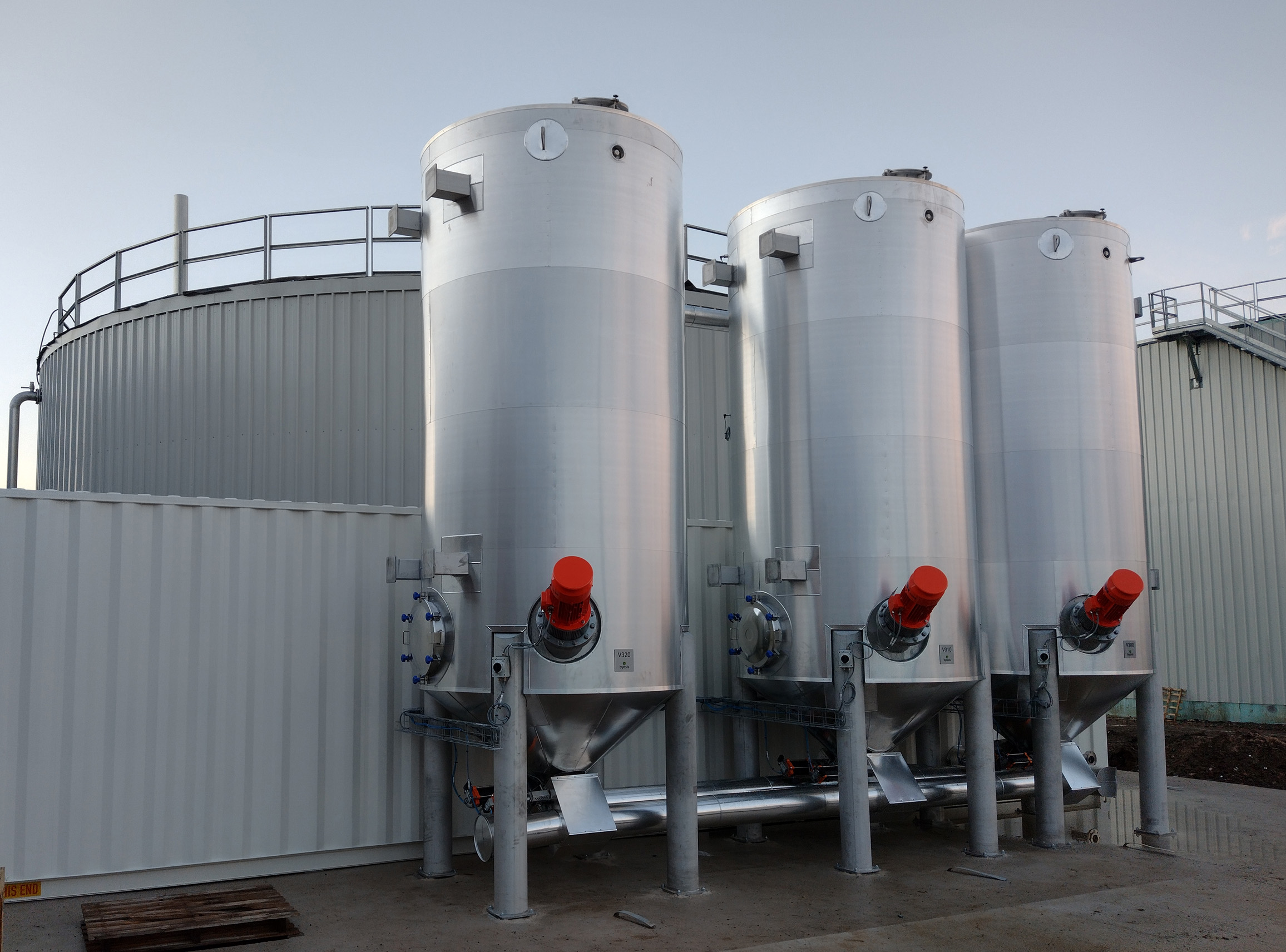Your challenges
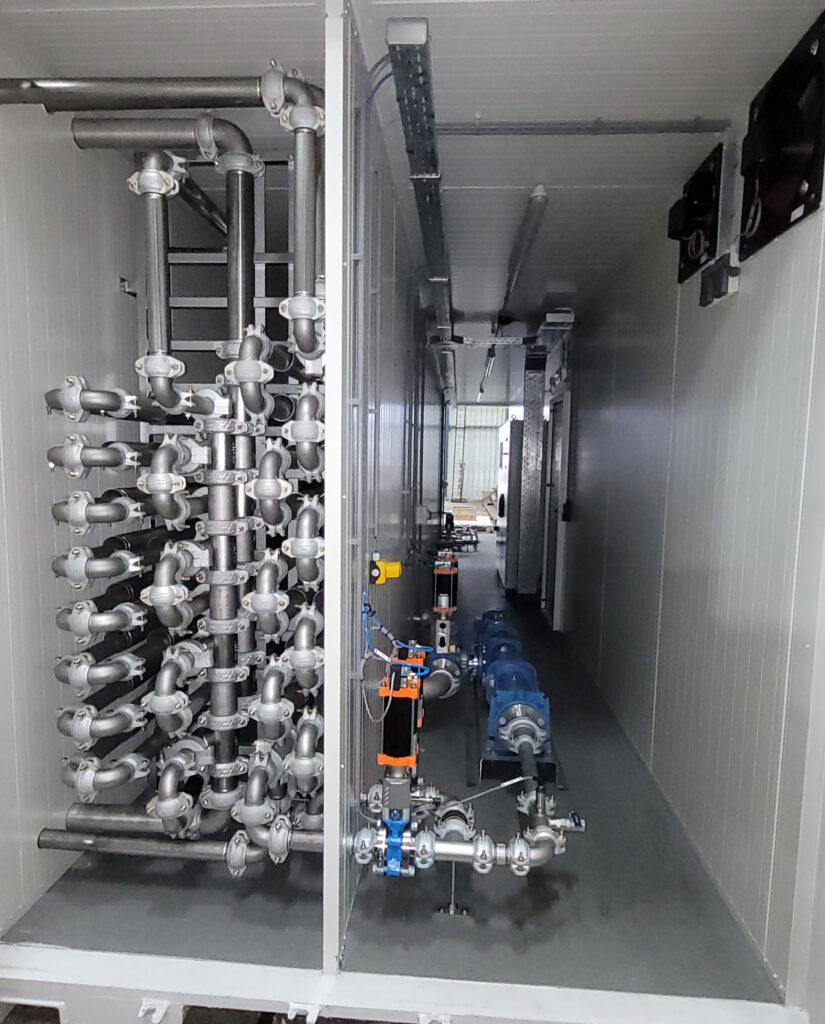
Pasteurisation for high viscosity, high dry matter products.
The ByoPast® solution can handle highly polluted waste streams. Due to the modular tube-in-tube heat exchanger and robust engineering of the vessels and piping, high viscosity and high dry matter will be processed with high reliability and availability.
Low availability of heat
The ByoPast® requires a low heat consumption due to the recuperator up to 90%, combined with a 24/7 autonomous operation.
Do you want to know more about the ByoPast®?
The process
Digestate is pumped via a heating step (tube-in-tube) to pasteurization vessels at a temperature of >70 °C. The digestate is kept inside the reactors for a minimum of one hour. Within this hour, the reactors are continuously being filled, standing still (is pasteurizing) and being emptied in an alternating method to ensure a continuous flow. The reactors are stirred with an agitator and the temperature is monitored at 3 different positions inside each vessel to ensure a pasteurization temperature of >70 °C throughout the entire batch. Failed batches are prevented by a smart pre-heating process. Due to the built-in failed batch technology, the ByoPast® guarantees to discharge only the succesfully pasteurized batches.
Our positive impact
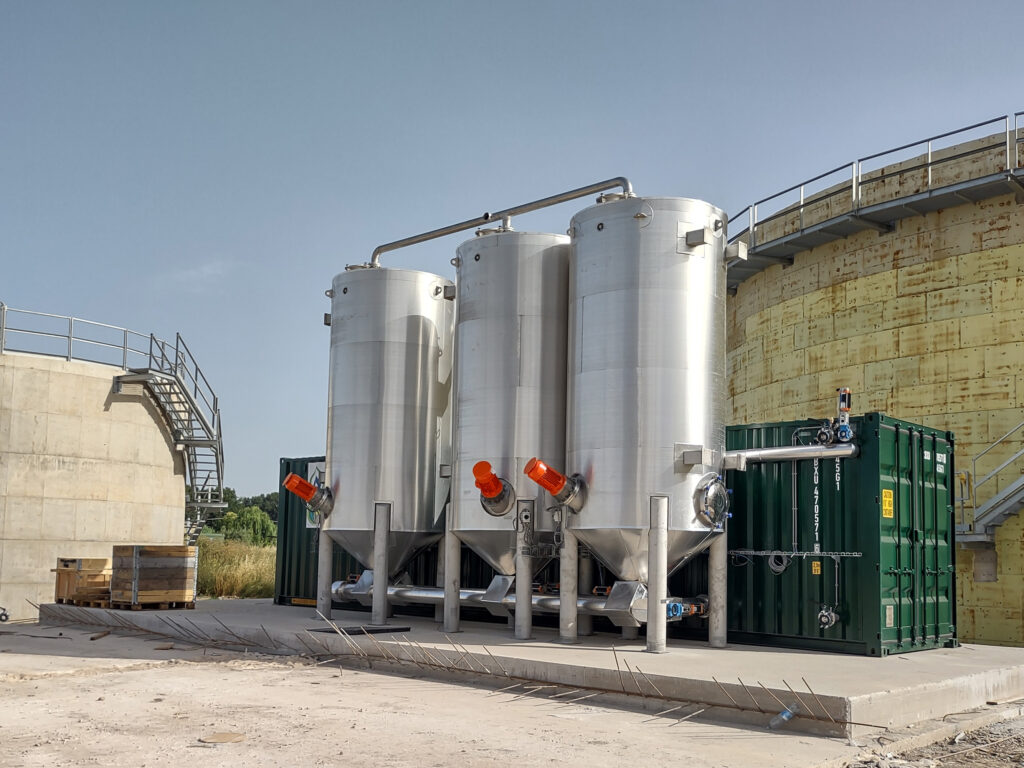
Cost competitive solution
The ByoPast® systems are designed for large throughputs and continuous 24/7 operation. Standardized system for 10-20-30 and 60 m3/h. Cost competitive from 20 m3/h and up.
Small footprint
Pumps and control system and heat exchanger are mounted inside an insulated 40 ft container. With pasteurization reactors to the side requiring minimal ground space.
Robust, compact, reliable
Complete with advanced control system, compatible with overall plant control/SCADA systems and ‘plug and play’ for quick erection, reliable operation and 24/7 monitoring.
Energy efficient system
By continuous heat consumption and heat recovery (up to 90%, depending on the viscosity) combination with other heat consumers is simple and leading to large savings.
Log files
To prove compliance with EU-reg. 1069/2009 or BSI PAS 110 and that all batches have successfully passed pasteurization, the data logs are stored and available in the SCADA system of the ByoPast® to be exchanged with the authorities.

Key figures
10-60 m³/h
modular systems
>90%
heat recovery
Contact our experts
Frequently asked questions (FAQ)
The ByoPast® system can be combined with a feed bunker, conveying systems and macerators that we purchase from 3rd party vendors. We can offer a complete solution or only a pasteurization system.
The smallest ByoPast® we offer is for a maximum throughput of 10 m3/h. Reducing the size does not decrease the CAPEX by much. There are many suppliers that offer cheaper solutions, our focus is on large installations.
We have good experience with digestate fractions of 12% DM. The execution depends on the digestate flow, viscosity, DM-content and particle size.
Heat recovery is done in the same heat exchanger (tube-in-tube) as is used to heat up the substrates. Recovery values as high as 90% are possible. Direct heat recovery is limited by the viscosity of the medium and the particle size of the solids. If direct heat recovery is not possible indirect heat recovery (with water as intermediate loop) is always an option. Or recovery against another liquid stream. In most cases there is an economic optimum.
Cleaning of the ByoPast® reactor vessels is rare. Principally the conical bottom and the agitation are designed such that the systems are selfcleaning. However, this depends on the substrate. The heat exchanger can be subject to struvite or calcite build-up, which is also dependent on the susbtrate. Cleaning can be done mechanically or inline. Byosis offers CIP systems (clean-in-place) for (semi)-automatic cleaning.
Other solutions
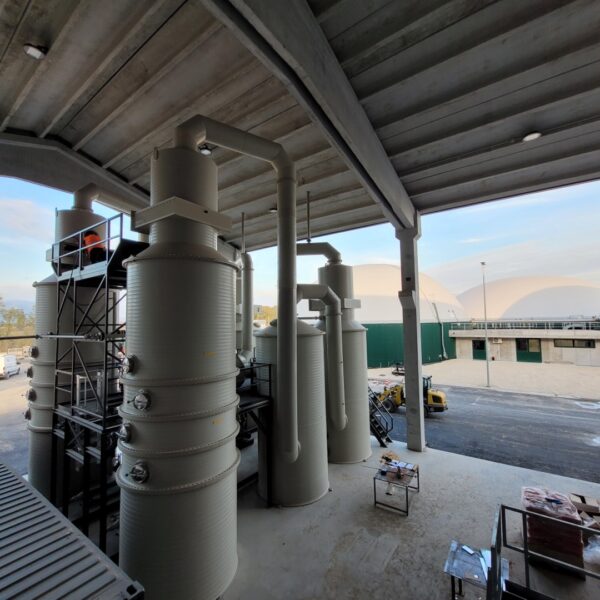
- Municipal
- Industrial
Ammonia stripper – ByoFlex®
- Resource Recovery
- Industrial water
- Sludge
- Wastewater
- Process water
With the revolutionary ByoFlex® system nitrogen is recovered from highly contaminated substrates. The ByoFlex® system is a one-of-a-kind ammonia stripping unit. Through years (...)
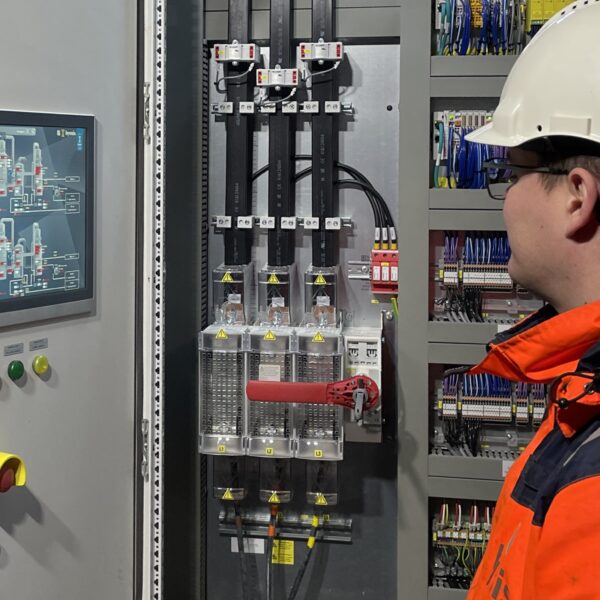
- Municipal
- Industrial
Byosis Services
- Resource Recovery
- Industrial water
- Sludge
- Process water
- Wastewater
At Byosis, part of Nijhuis Saur Industries, we offer a Service Level Agreement which helps you achieve optimal performance and reliability of your ByoFlex® and/or ByoPast® installation. (...)
